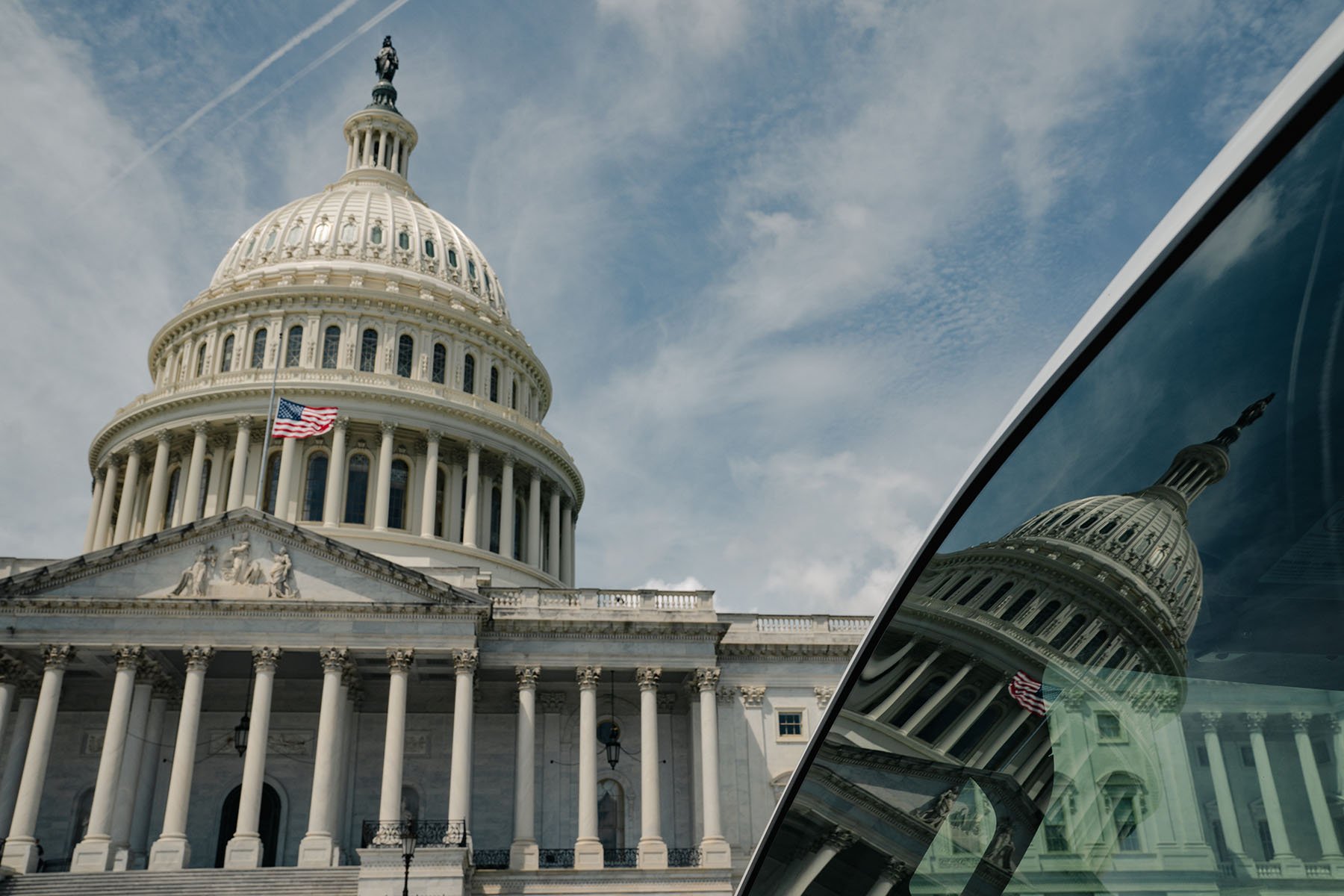When the 2025 National Defense Authorization Act (NDAA) passed out of the House Armed Services Committee in May, Democratic Rep. Mikie Sherrill of New Jersey was ecstatic. The bipartisan bill had passed almost unanimously, and it included her amendment to allow active-duty service women to receive a year’s supply of contraception.
Then the bill went to the House floor, where hundreds of amendments were introduced and debated. The final bill — which authorized $923.3 billion for the country’s defense — passed 217-199 with several new Republican-backed measures related to limiting abortion access and eliminating diversity, equity and inclusion initiatives.
Sherrill did not vote for this version of the bill.
“There was really strong support out of committee for that bill, and then Republicans immediately got to work loading it up with all kinds of right-wing, and quite frankly offensive, stuff,” said Sherrill, a Navy veteran and member of the House Armed Services Committee.
The latest bill includes an amendment from Republican Rep. Beth Van Duyne of Texas to prohibit taxpayer funding from covering service members’ travel or leave expenses related to abortion. The issue of military abortion access has been highly contentious and contested since the Pentagon announced a new policy that it would pay for service members to travel for abortions after the overturning of Roe v. Wade in 2022. The policy was only used 12 times from June to December 2023, according to the Pentagon. For about 10 months last year, Sen. Tommy Tuberville, a Republican from Alabama, blocked military promotions on the Senate floor over his disapproval of the policy.
“My amendment represents a return to long-standing precedent, something that has been agreed on by both Democrat and Republican Administrations for decades — until it became politically inconvenient for the current administration,” Van Duyne said in a statement. “Along with my Republican colleagues, I’ve offered solutions that provide meaningful support to women throughout their pregnancy and after — whether they choose adoption or to raise their precious child.”
The House passed a similar amendment in last year’s NDAA. The 2025 bill also includes conservative amendments that prohibit funds for certain executive orders on climate change, bans drag shows and drag-related events and eliminates all diversity, equity and inclusion-related offices in the Defense Department and military.
“I feel pretty bad about the bill at this point,” Sherrill said. “It’s a shame when you see something like the National Defense Act, which is critical to our nation’s security and to protecting service men and women across the country and across the world, being used by the far-right MAGA extremists as a wish list.”
Rep. Elissa Slotkin, a Michigan Democrat and member of the House Armed Services Committee, also voted against the House version of the NDAA. Slotkin, who was recruited by the Central Intelligence Agency and worked alongside the U.S. military for three tours in Iraq, successfully championed a provision that established pregnancy as a life-qualifying event for TRICARE, the military’s main health insurance provider. Her provision was included and allows dependents of service members to enter or leave the military health care system after learning of their pregnancy in order to improve overall access to quality maternal health care.
Rep. Chrissy Houlahan, a Pennsylvania Democrat who is an Air Force veteran and a member of the House Armed Services Committee, successfully advanced 31 of her own recommendations in the bill but also ultimately voted against the NDAA.
“It’s enormously disappointing to see the bipartisan bill that we passed out of committee 57-1 become overrun with partisan amendments that restrict reproductive freedoms, attack LGBTQ+ service members, leave our NATO allies behind, ignore the threat of climate change, and more,” Houlahan said in a statement. “Our military families deserve better than this political theatre.”
Houlahan’s recommendations in the bill included a 15 percent pay increase for junior enlisted service members, guaranteed coverage of child care fees for the first child of military staff, expanded eligibility for child development programs on and off military bases and the permanent authorization of a program that supports military spouses with employment.
“I have full faith and confidence that the final bill will be stripped of these ridiculous and harmful amendments,” Houlahan said. “For those who are of a certain age, we remember our ‘Schoolhouse Rock!’ [educational TV series] and that this legislative process is far from over.”
The next step is for the Senate, which has a Democratic majority, to pass its version of the 2025 NDAA in the coming weeks. Then, the House and Senate will confer and reconcile differences between the two versions.
Sherrill said she’s already reached out to Democrats in the Senate Armed Services Committee to discuss strategy and propose legislation related to women’s health care.
“It seems as if Republicans are really working to use the National Defense Authorization Act — much like other pieces of legislation — to reverse a lot of the progress women have made across the country,” Sherrill said.
The NDAA establishes programs but does not actually provide budget authority or spending for those programs. To provide funding, Congress passes 12 appropriations acts each year — including one for the Department of Defense. Those, too, are likely to include amendments and adjustments. This year, Republican Rep. Matt Rosendale of Montana submitted an amendment to the appropriations bill that would defund assisted reproductive technology within the department, including the practice of in vitro fertilization (IVF).
Members of the military community struggle with starting and growing families at far higher rates than their civilian counterparts — and limited IVF access makes it more difficult. Currently, only six military facilities out of about 500 in the country offer IVF treatment, though patients are required to pay out of pocket and typically have to use vacation time or get permission from their command to take leave for appointments. More than 10 percent of active-duty respondents said family-building challenges are a main reason why they’d leave the military.
“It is striking to me how out of step and out of touch Republicans are not only with women across the country, but certainly service women,” Sherrill said.
Correction: An earlier version of this article misstated the state that Rep. Matt Rosendale represent. He is from Montana.







